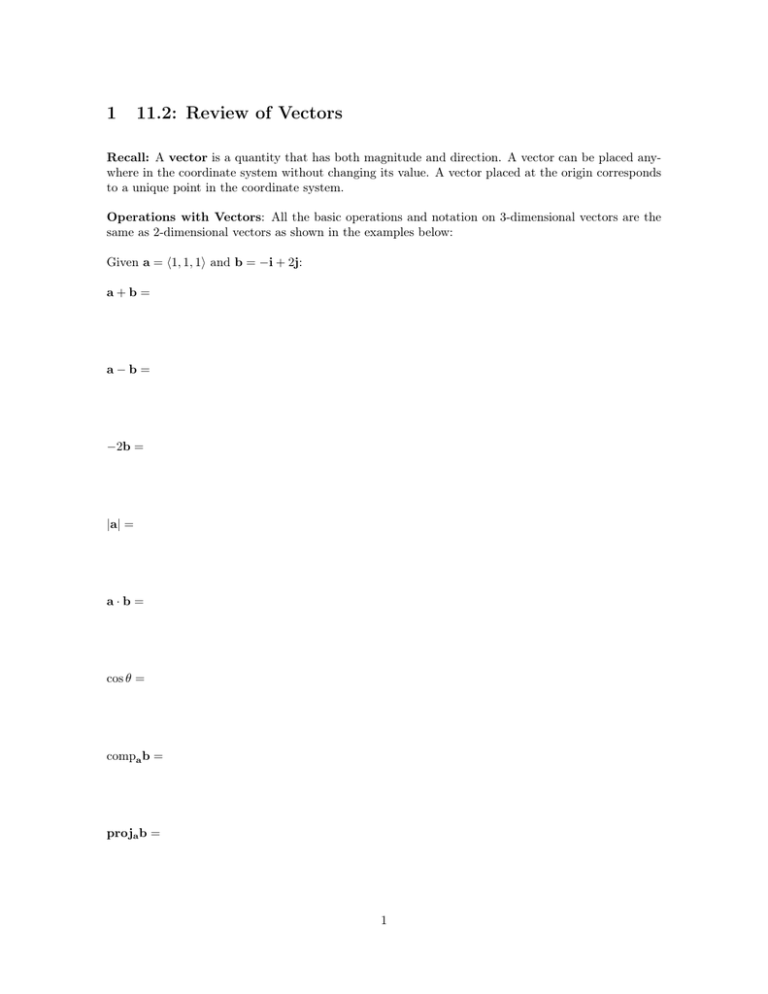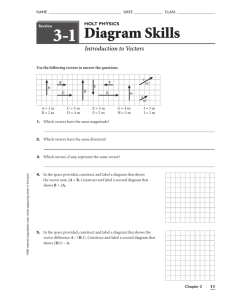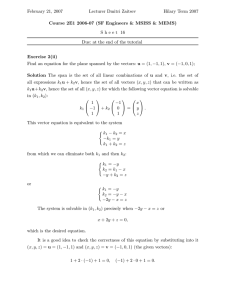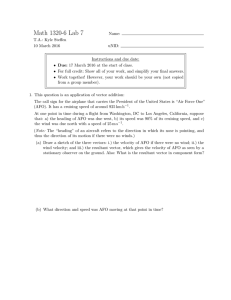1 11.2: Review of Vectors
advertisement

1 11.2: Review of Vectors Recall: A vector is a quantity that has both magnitude and direction. A vector can be placed anywhere in the coordinate system without changing its value. A vector placed at the origin corresponds to a unique point in the coordinate system. Operations with Vectors: All the basic operations and notation on 3-dimensional vectors are the same as 2-dimensional vectors as shown in the examples below: Given a = h1, 1, 1i and b = −i + 2j: a+b= a−b= −2b = |a| = a·b= cos θ = compa b = proja b = 1 Other Terms (some new, some old): Direction Angles/Direction Cosines: Orthogonal Vectors: Work: Examples: Given the points P (1, 1, −1), Q(2, 0, −1), and R(1, −1, 1), find ∠P QR 2 Find a unit vector in the direction of the vector from (1, 1, 1) to (3, 1, −1). On Beyond Average: Find the angle between the diagonal of a cube of side length 1 and the diagonal of one of its sides. Find the exact angle (in degrees) between the vectors u = h1, 1, 0i and v = h1, 2, 1i. 3



